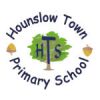New Ofsted inspection framework – what schools need to know
Published: Wednesday, June 5th, 2019 at 3:32 PM
First published on SchoolsWeek.co.uk 14th May 2019
Ofsted has published the finalised version of its new inspection framework, which will govern all school visits from this September.
The watchdog’s leaders have made a number of changes to the framework since the draft was published earlier this year, in response to a consultation to which more than 15,000 people and organisations responded.
Here are the main changes schools need to know about.
1. On-site preparation plans scrapped
Ofsted had proposed that the lead inspector would arrive on-site the afternoon before an inspection to do their preparation on-site.
The rationale was that inspectors could have more detailed discussions with headteachers before the inspection officially began.
But heads’ groups warned this amounted to an earlier start, and others claimed it constituted a no-notice inspection because the inspector could arrive in as little as two-and-a-half hours after the first phone call.
In the consultation, the proposal was opposed by three quarters of respondents, so Ofsted has decided to scrap it and replace it with a 90-minute phonecall between the lead inspector and head the day before an inspection begins.
2. ‘Good’ small schools avoid two-day inspections
Plans to increase the length of time inspectors spend in previously ‘good’-rated schools will go ahead, despite opposition.
More than half of respondents to Ofsted’s consultation opposed a move to increase the length of so-called “short inspections” from one to two days.
There were particular concerns among those working in primary schools, six in ten of whom opposed the proposal, and the potential extra workload it could create for small schools.
As a result, Ofsted said that ‘good’ or non-exempt schools with 150 or fewer pupils on roll will continue to receive a one-day inspection.
3. Schools will get time to shake up their curriculums
Ofsted’s new “quality of education” judgment will be implemented as planned after it received the backing of the majority of respondents.
However, the inspectorate is proposing to “phase in” part of the new framework which looks at the “intent” of schools’ curriculums. This follows concerns that schools may want to review their curriculums in response to the new framework, but may not have time to do so before September.
Ofsted said during this transitional period, the judgment “will not be negatively affected if it is clear to an inspector that leaders have a plan for updating the curriculum and are taking genuine action to do so”.
“We will review this transitional phase in the summer of 2020.”
4. Ofsted will check whether bullying is tolerated, not whether it exists
The draft inspection framework proposed that Ofsted would look for an absence of bullying in determining how to grade a school on the behaviour and attitudes of its pupils.
The proposal prompted concerns that this approach may encourage schools to hide or fail to report bullying.
Today, Ofsted said it believed the concerns raised “may be justified”, and has amended its criteria to place the emphasis on “whether or not providers tolerate bullying, harassment, violence, derogatory language and discriminatory behaviour and, crucially, how swiftly and effectively they take action if these issues occur”.
“We have also made changes to the personal development grade criteria to allow inspectors to properly recognise the importance of high-quality pastoral support.”
5. Heads’ use of internal data will be assessed
Ofsted has announced it will proceed with its plans for inspectors not to look at schools’ internal data during inspections, despite opposition from more than two thirds of respondents to the survey.
Forty-three per cent of respondents disagreed or strongly disagreed with the proposal, while 42 per cent were in favour.
Although it will implement the change as planned, Ofsted has also made clarification to its inspection handbook “to try to ease concerns” raised by those who objected.
The clarification recognises that school leaders draw on “a variety of sources when considering pupil performance, including internal assessment information”. It explains that inspectors will consider “the actions taken by schools in response to whatever internal assessment information they have”.
Inspectors will review the impact of those actions without reviewing the assessment information itself, Ofsted said.
6. Up-to-date private school judgments delayed to 2020
In its original draft framework, Ofsted proposed that it would start issuing up-to-date judgments following emergency “additional inspections” of the private schools it inspects.
At the moment, following such inspections, Ofsted simply rules on whether the independent school standards are being met, but does not issue schools with an updated graded judgment.
Today, Ofsted announced it will proceed with the proposal after receiving “very strong support” in the consultation.
However, the watchdog accepts that “designing the most effective way of doing this will take some time”, and will therefore not implement the change until September 2020.

















































































